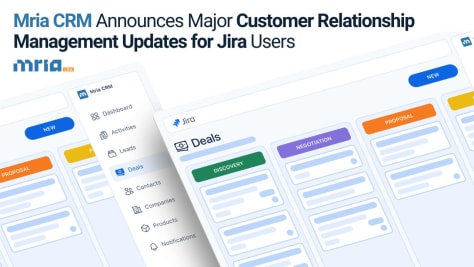
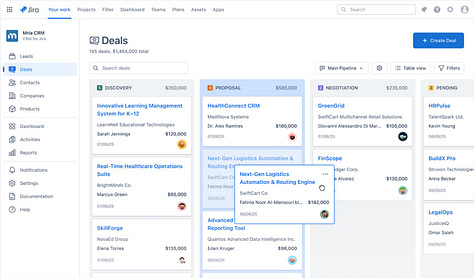
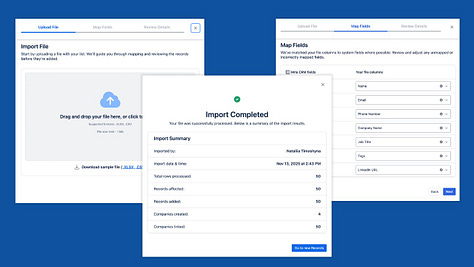
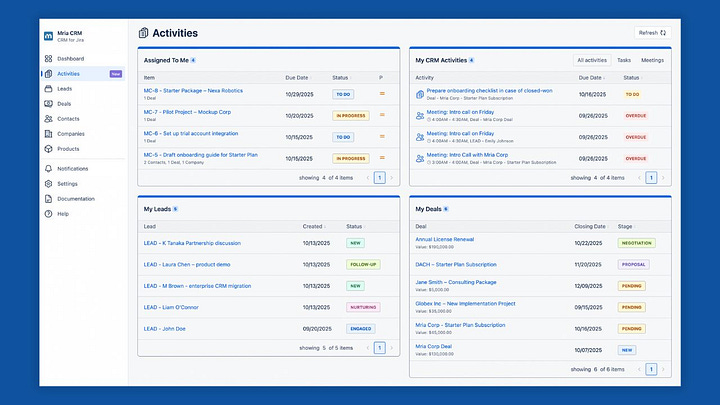
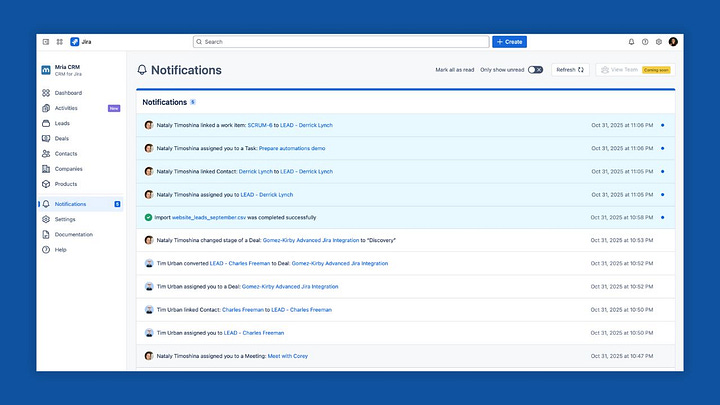
DOVER, DE -- Mria Labs, the company behind Mria CRM: CRM for Jira Teams, a Forge-native customer relationship management solution for Jira Cloud, announced a series of updates that have been rolled out over the first two months since launch — expanding how organizations manage customer data and customer-facing work inside Jira. The announcement highligh…
